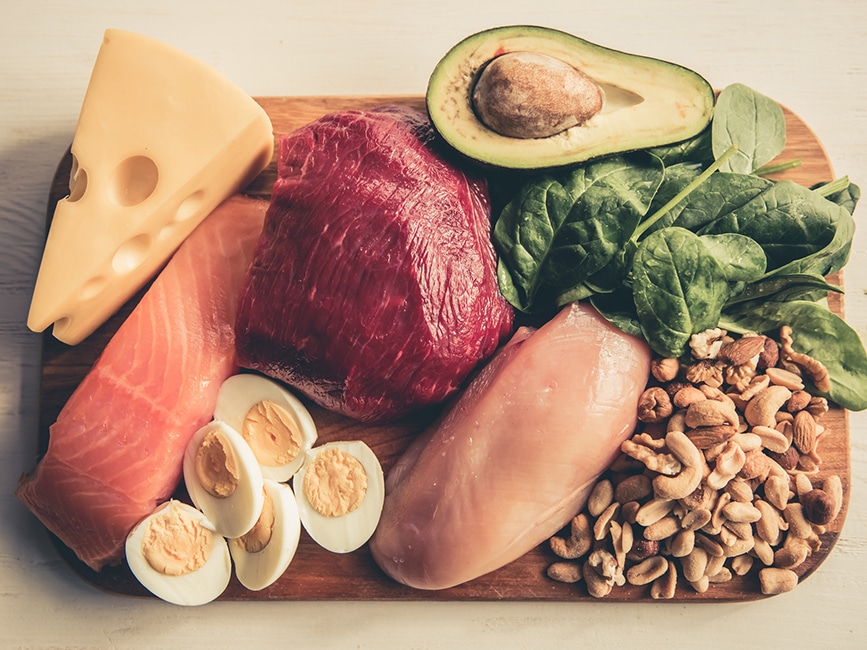Buy or Bye: Greens Powders
Are greens powders and similar supplements worth the hype? Or are real fruits and veggies the better choice?

Since eating fruits and vegetables is known to promote good health, the various types of powdered greens, including the popular AG1, claim to do the same. And in a way that is much more convenient than chopping up a salad. In general, greens powders are produced by dehydrating various ingredients and then crushing them into a fine powder that can be mixed into liquids. Formulas vary by brand, but most contain greens like broccoli and barley grass, as well as fruits, mushrooms, herbal extracts, probiotics, vitamins and minerals.
The Upside: These supplements can certainly help fill in some nutritional gaps in your diet, say for instance when you come up short in fruit or vegetable intake. Some brands will give you 100% or more of the daily recommendation for several important micronutrients including folate, zinc and magnesium, as well as probiotics that could benefit gut health. And with ingredients like medicinal mushrooms and herbal extracts, it’s very likely a greens powder will provide you with plant compounds that you’re not likely getting from your normal diet. Some of these may provide certain health benefits like increasing cognitive functioning.
The Downside: There is scant research to support all the lofty health claims. No research has shown that people who use greens powders have better health outcomes than those who don’t. Because many brands are made with numerous ingredients, there is the real possibility that some of them, including mushrooms and prebiotics, will be supplied in amounts that are less than the research-supported dose required to have a positive impact on certain health measures. It’s hard to know if the probiotics that are being added are the ones that are going to benefit your particular microbiome and whether they’re provided at sufficient levels. They are also typically low in fiber, which is a bit surprising considering their veggie and fruit origins. Some people will experience the licensing effect where one good habit such as taking a greens powder justifies, perhaps subconsciously, a not-so-healthy act such as eating fewer vegetables or exercising less. And not all of them are pleasant to drink.
The Verdict: They’re typically rich in micronutrients, and antioxidants too, which means the various guises of greens powders can help increase the nutritional quality of your diet in a convenient, easy way. But the sales pitch of these pricey supplements is not supported by robust science and they do not replace whole-food plants in your diet, which should be obvious but bears repeating. No amount of powdered spinach, licorice root or rosehip will make up for a lousy diet. If only it was that simple.
Want to learn more? Potassium From Food VS. Supplements
Matthew Kadey, MS, RD
Matthew Kadey, MS, RD, is a James Beard Award–winning food journalist, dietitian and author of the cookbook Rocket Fuel: Power-Packed Food for Sport + Adventure (VeloPress 2016). He has written for dozens of magazines, including Runner’s World, Men’s Health, Shape, Men’s Fitness and Muscle and Fitness.





